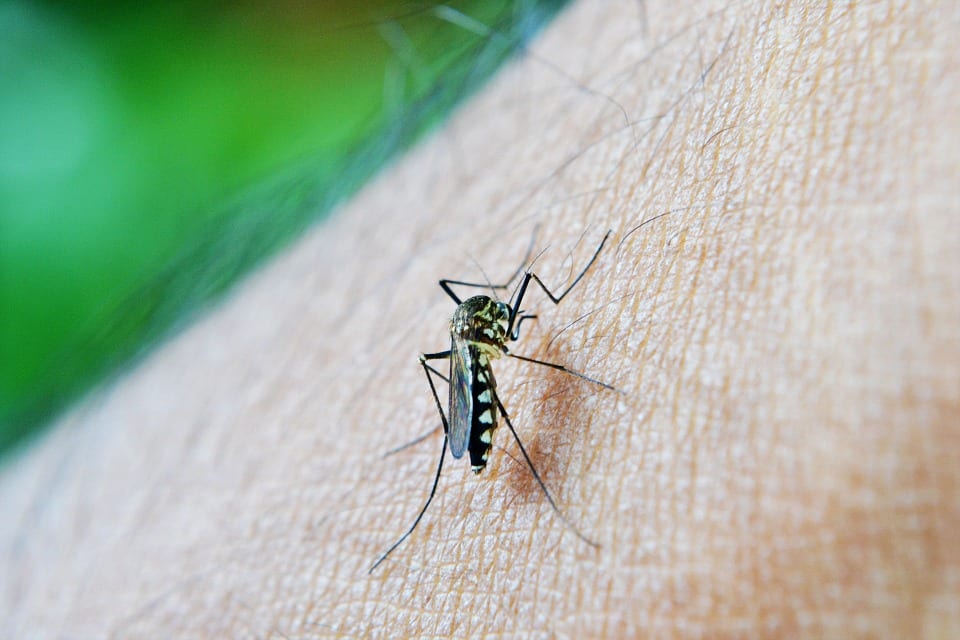
Expat Safety Tips: What to Do to Avoid Malaria
In 2016 there were 216 million report cases of malaria worldwide and 445,000 deaths due to the parasite. Malaria is a major global killer and many people living in poverty in third world countries do not receive the education or means to protect themselves against the disease.
If you are travelling or moving to a country that is considered at risk of malaria, check out the information below to help prevent mosquito bites and contracting the disease.
 What is malaria?
What is malaria?
Malaria is a tropical disease spread by mosquitos. Whilst found in more than 100 countries, Africa carries a very high of global malaria cases. In 2016 Africa was home to 90% of all malaria cases and 91% of all malaria deaths. Other malaria risk areas include:
- Large sections of Asia
- Central and South America
- Haiti and the Dominican Republic
- Parts of the Middle East
- Some of the Pacific islands
How do you get malaria?
Malaria in humans is due to the plasmodium parasite. Mosquitos which have bitten an infected person can then pass it on to countless people through their bites as they seek blood to nurture their eggs.
There are many different types of plasmodium parasites, but only five can cause malaria in humans:
| Plasmodium falciparum | The most common type of malaria parasite and responsible for the majority of malaria deaths – mostly found in Africa |
| Plasmodium vivax | A milder form of falciparum found in Asia and South America that can cause relapses |
| Plasmodium ovale | Sometimes not detected for years and one of the most uncommon forms, usually found in West Africa |
| Plasmodium malariae | A rare strain mostly found in Africa |
| Plasmodium knowlesi | A very rare strain mostly found in southeast Asia |
However, because malaria is transmitted by bloody a mother can pass he disease to her baby at birth. Other ways include a blood transfusion, an organ transplant and using shared needles of syringes.
Is malaria deadly?
Malaria can lead to death, particularly if left untreated. The World Economic Forum released statistics about the number of people killed by animals per year. On average 10 people die due to shark attacks, 25,000 due to rabies-infected dogs and 50,000 due to snake bites. 475,000 people die at the hand of another human but, coming out on top, roughly 725,000 people die annually due to mosquitos.
Malaria can cause a number of life-threatening complications, these include:
- Low blood sugar
- Anaemia
- Organ failure
- Kidneys, liver or spleen
- Fluid in the lungs
- Pulmonary edema
- Swelling of the brain’s blood vessels
Preventing malaria
If you are moving to or travelling to an affected country it is critical that you take measures to prevent catching the disease. Medical professionals advise adopting the ABCD prevention approach:
Awareness of risk – are you at risk of malaria?
Bite prevention – use a mosquito neck and insect repellent to protect yourself as much as possible.
Check whether you need malaria prevention tablets – your doctor will be able to help you with antimalarial tablet courses before you travel. There is no vaccine.
Diagnosis – if you experience any malaria symptoms (even up to a year after you have returned hope) seek immediate medical advice.
Malaria symptoms
Most people who do become infected with malaria will typically develop symptoms within 10 days to four weeks. However, some people carry the disease and do not present any signs of illness for up to a year. If you are in a malaria risk area seek medical help if you experience any of the following:
- Shaking chills
- High fever
- Sweating
- Headaches
- Nausea and/or vomiting
- Abdominal pain
- Diarrhoea
- Anaemia
- Muscle pain
- Convulsions
- Bloody stools
- Loss of consciousness
How to treat malaria
Whether you are living abroad or have returned home, if you experience any malaria symptoms visit your doctor immediately. Explain your situation so that your doctor can perform a physical examination to determine whether you have an enlarged spleen or liver.
Your doctor will conduct a blood test to determine whether you have malaria. If the results come back positive the doctor will be able to determine:
- What type of malaria you have
- If the malaria has caused anaemia
- If the disease has affected your organs
- If the parasite you are infected with is resistant to certain medications
Usually, most cases of malaria will require a stay in hospital. Therefore, expats and travellers should make sure they have a expat insurance in place to cover treatment.
Medication and the course of action will differ between each of the five strains of the disease. Some parasites are resistant to certain drugs, so different medications may be introduced during your treatment.
The vivax and ovale parasites have liver stages – meaning the parasite can lie dormant in your body for extended periods of time and make you ill again in the future. In these cases, a doctor will you a second medication to prevent a future relapse of malaria.
Discover some of Expatriate Group’s other Expat Safety Tips articles below:
